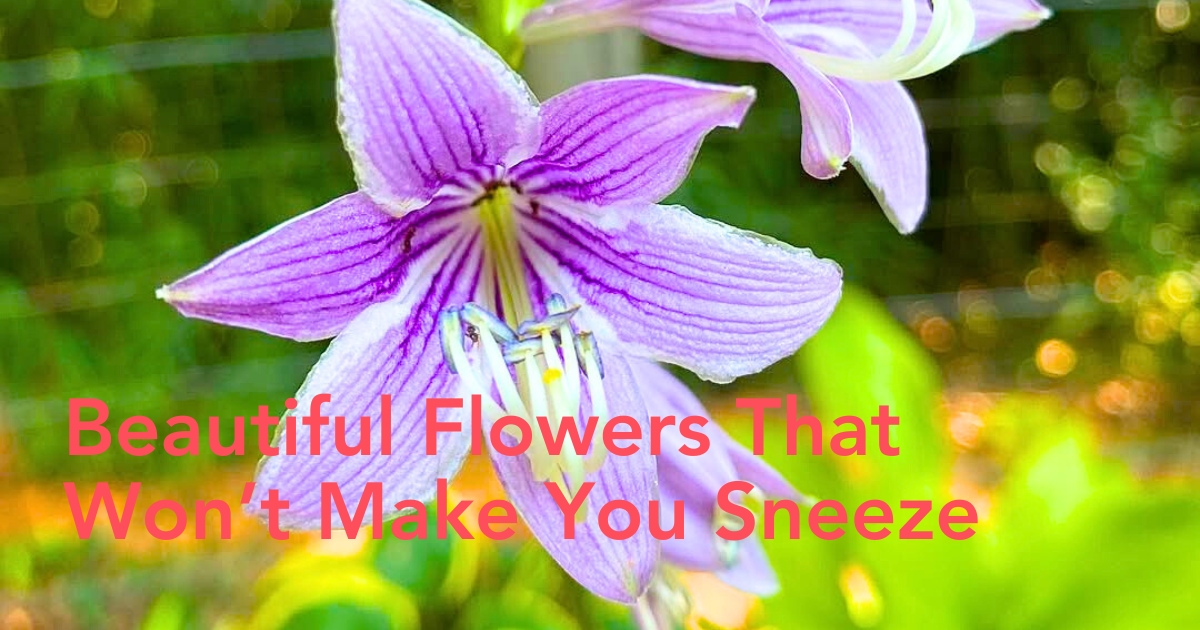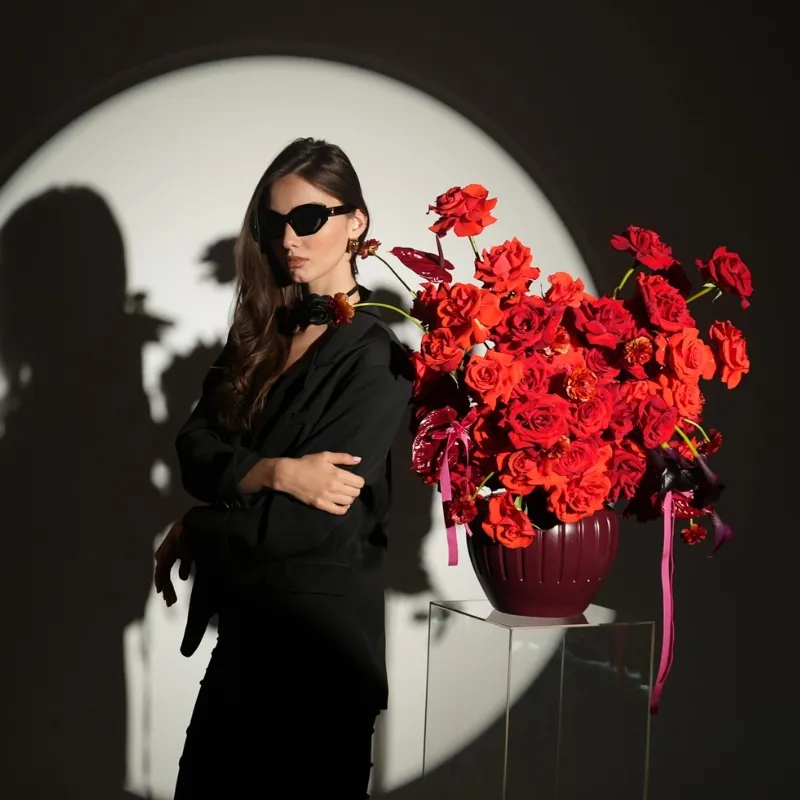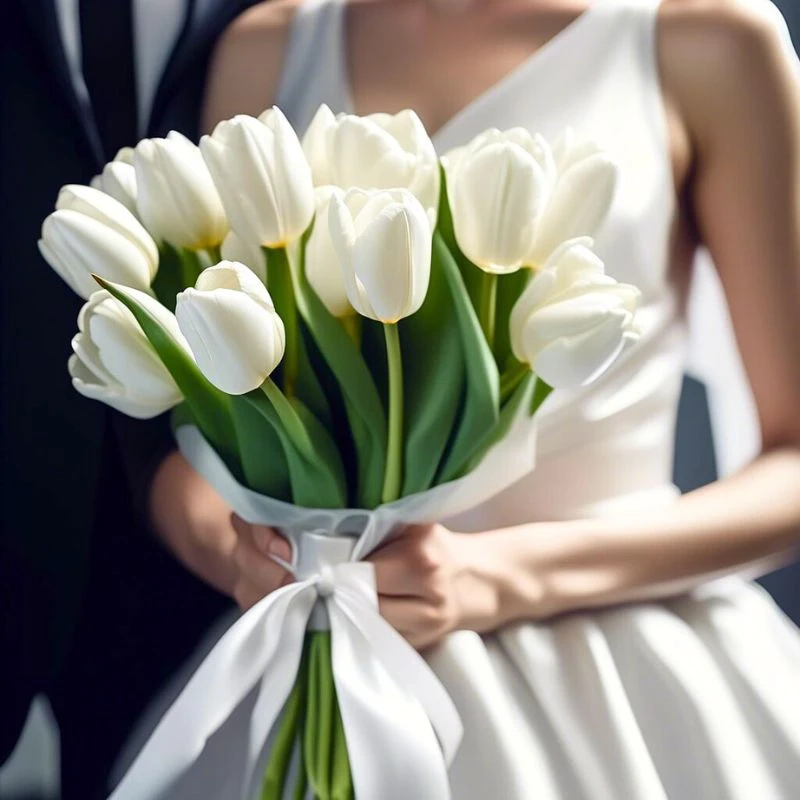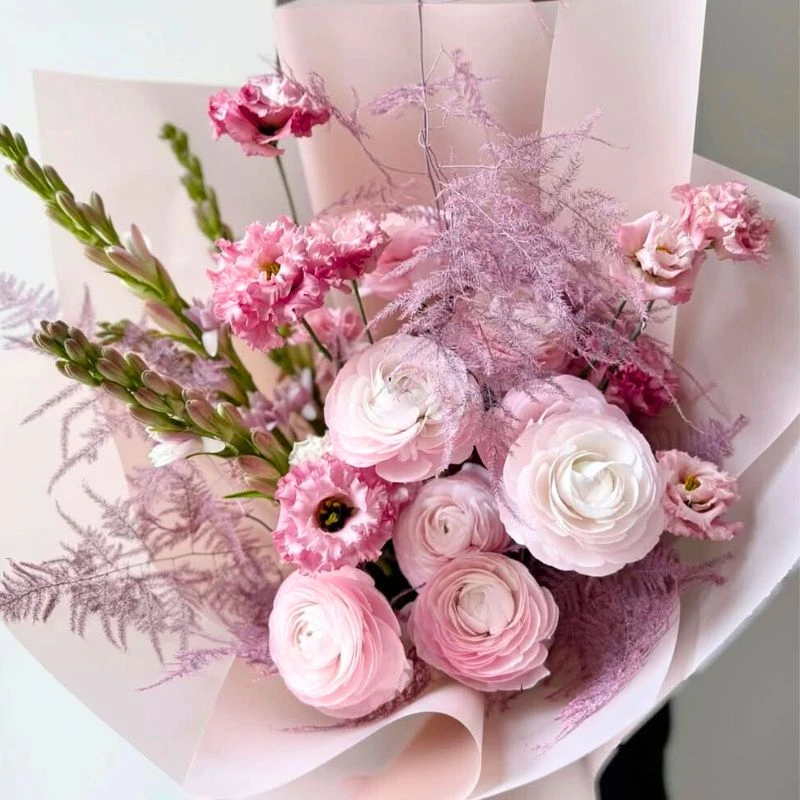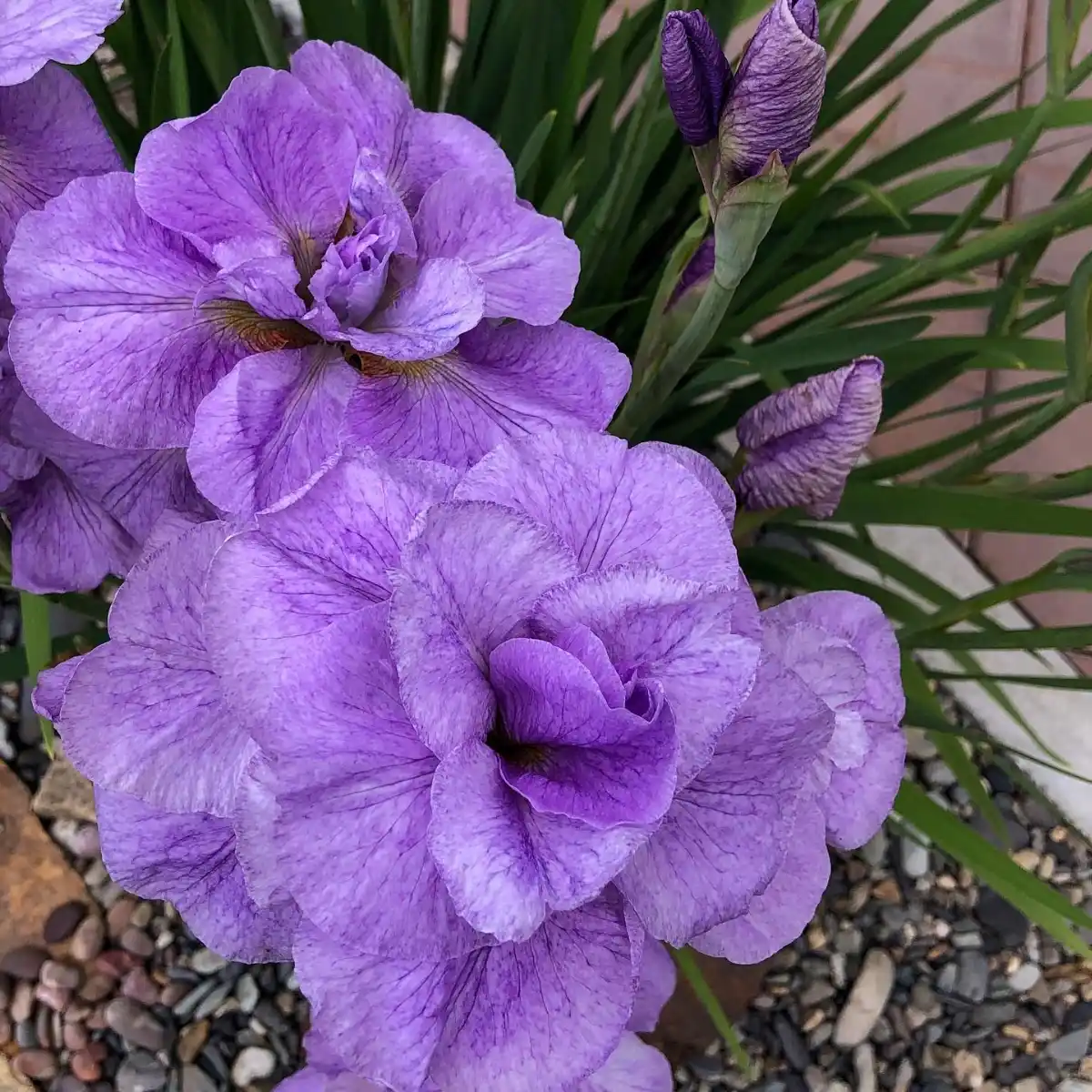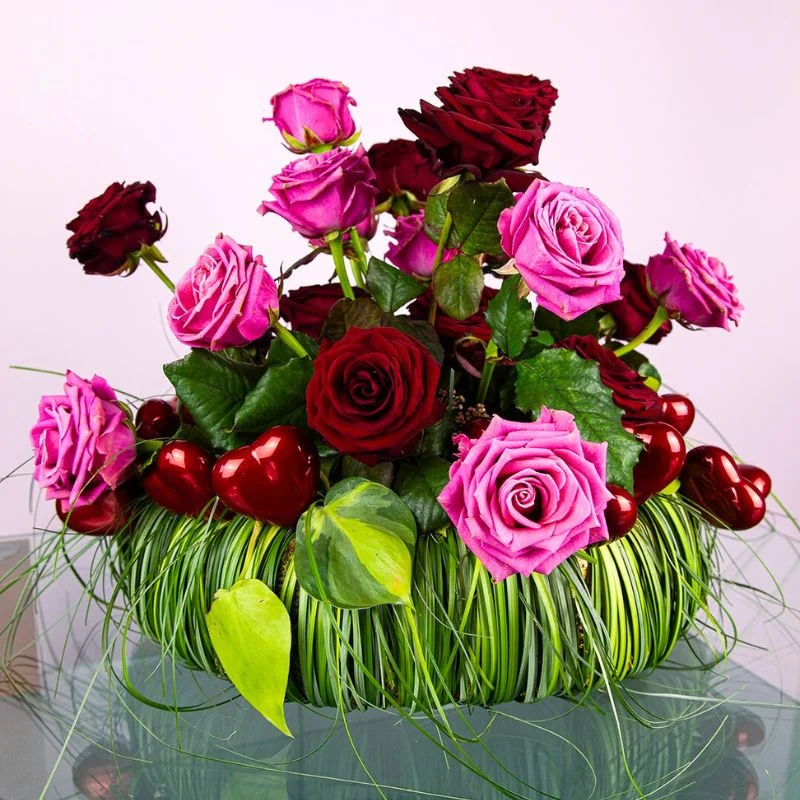Whether you have a green thumb or enjoy spending time in your garden, these hypoallergenic flowers are the perfect addition to your outdoor sanctuary. Featuring different colors, shapes, and unique properties, they offer a solution for those who suffer from allergies, ensuring that you can fully enjoy your outdoor gardens without the worry of triggering a frustrating bout of sneezing. You can plant them in your garden starting today to enjoy both their beauty and non-allergic properties.
8 Hypoallergenic Flowers for Your Garden
Unfortunately, the arrival of different seasons coincides with and exacerbates allergy season. As lovely as flowers are, many are also fragrant and pollen-dense; they can irritate the nose and eyes, making them unsuitable for gardeners with seasonal allergies. Don't be concerned, though! While many flowering plants can cause allergies, these eight flowers are allergy-friendly and will brighten up your yard without making your nose itchy or stuffy.

1. Hydrangea
Hydrangeas are perennial, deciduous shrubs famed for their profusion of blue, pink, and purple blossoms. These flowers are lower pollen producers, which tend to be easier on those with pollen allergies. The pollen produced by hortensias is heavy and sticky, making it less likely to become airborne and cause allergic reactions.
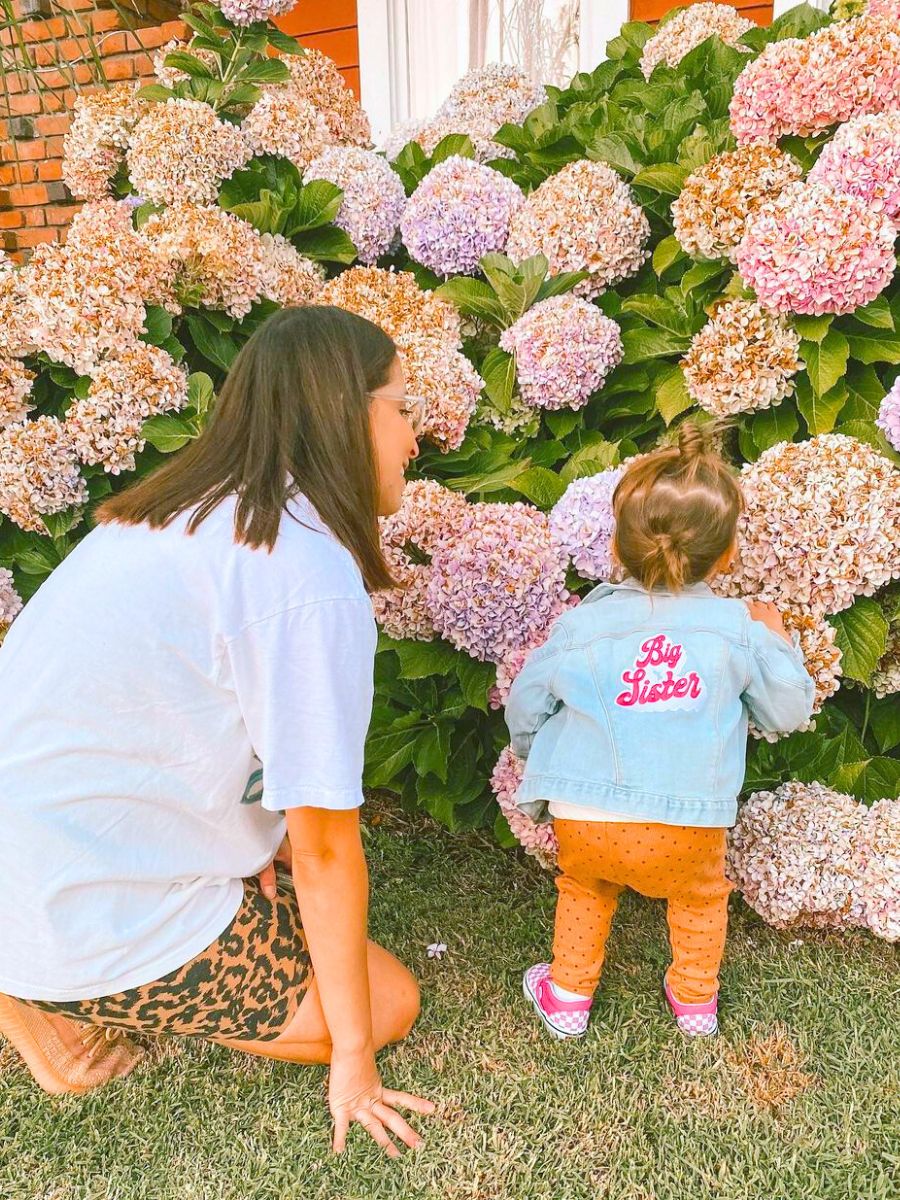
This is beneficial for individuals who are sensitive to pollen and experience symptoms such as sneezing, itching, or congestion. These plants also tend to bloom in the summertime, which helps to avoid additional pollen production during peak allergy season.
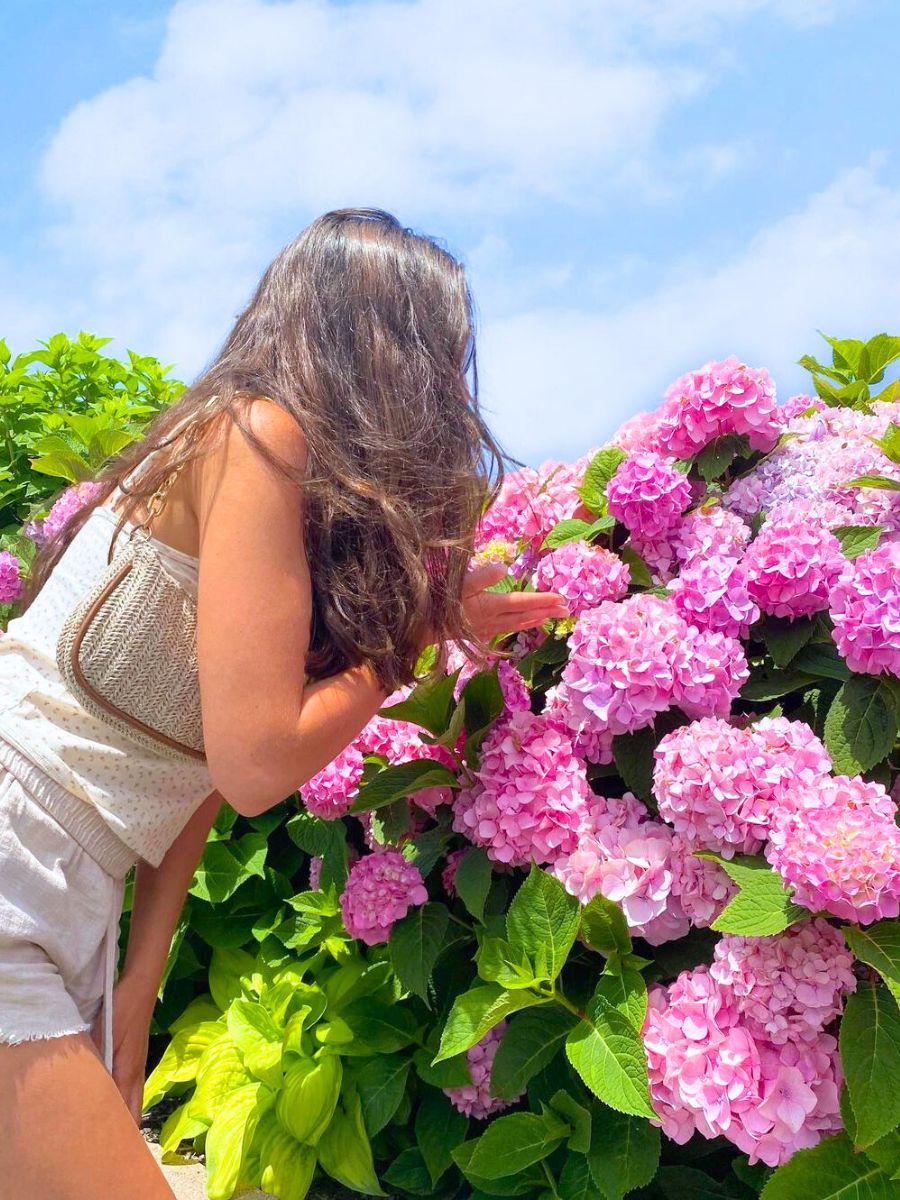
In addition to their low-pollen nature, hydrangeas also have large and showy flowers with tightly clustered petals. These dense flower heads further reduce the chances of pollen dispersal. As a result, the likelihood of coming into contact with hydrangea pollen is significantly lower compared to other flowering plants, minimizing the risk of triggering allergy symptoms.
2. Bird of Paradise Flower Is Allergy-Friendly
The Bird of Paradise, or Strelitzia, is a great flowering shrub that is ideal for warm and tropical areas. It makes a spectacular addition to any yard, which resembles a bird in flight, making this flowering plant particularly special. But now getting to the main point, why is the flowering plant one of the eight allergy-friendly flowers to plant in your garden?

The best part is that this flower does not release airborne pollen, making it great for allergic patients. With glossy, large leaves that grow to astonishing heights, this plant grows quickly and can adapt to a variety of light intensities.
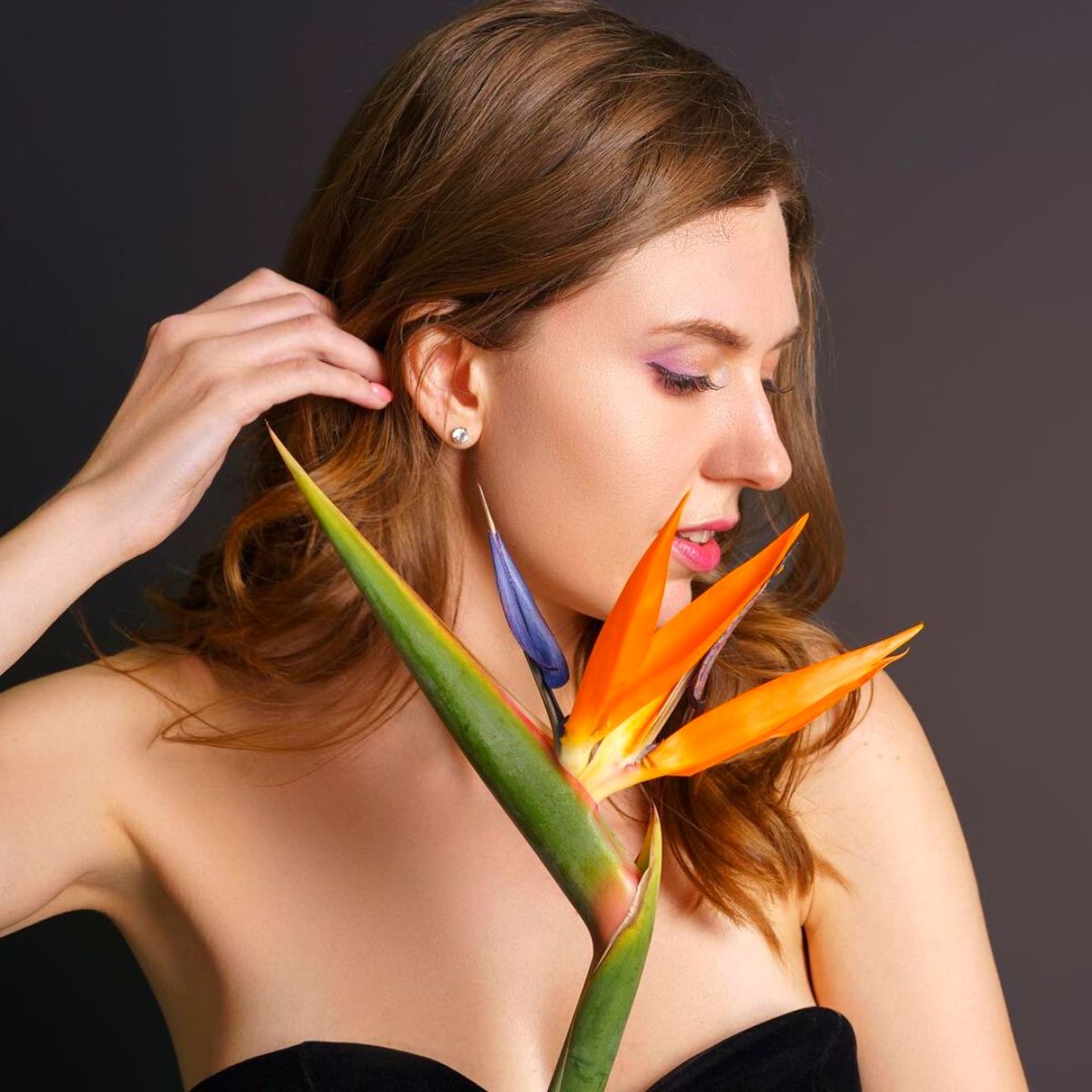
3. Bougainvillea
Yet another of the eight flowering plants to have in your garden is the bougainvillea. By planting bougainvillea, you can have a very colorful landscape without a doubt, plus the fact that it'll be hypoallergenic for anyone who has allergy problems when they visit your garden. The plant's low pollen production, non-airborne pollen, and attractive bracts make it an ideal choice for individuals with allergies to enjoy the beauty of nature without the discomfort of pollen-related allergic symptoms.

4. Hosta Flower
Hostas are versatile plants that bring a touch of green to any garden, and their sprays of purple-and-white flowers add a gorgeous element to their appeal. Hostas can serve multiple purposes, whether you choose to use them as borders, ground covers, or containers.
What makes hostas even more appealing, especially for individuals with allergies, is their hypoallergenic nature. The buds of hosta flowers do not possess a scent, which is beneficial for those who are sensitive to strong floral fragrances that can trigger allergic reactions.
Moreover, hostas produce relatively low amounts of pollen as well. The minimal pollen production of hostas helps maintain a more allergen-free environment, enabling you to fully appreciate the tranquility of your garden without worrying about allergic symptoms.

5. Rose
Roses have a pleasant, calming aroma that makes you want to inhale deeply every time you're near one, right? Fortunately, because it produces little pollen, this favorite garden flower is allergy-friendly and, without a doubt, one of the most popular types of flowers to plant in gardens for a very long time. Rose pollen is also dense, so it will not float through the air and cause your eyes to moisten. Avoid wild rose varieties to reduce sneezing even more, and instead, stick to cultivated kinds of roses.
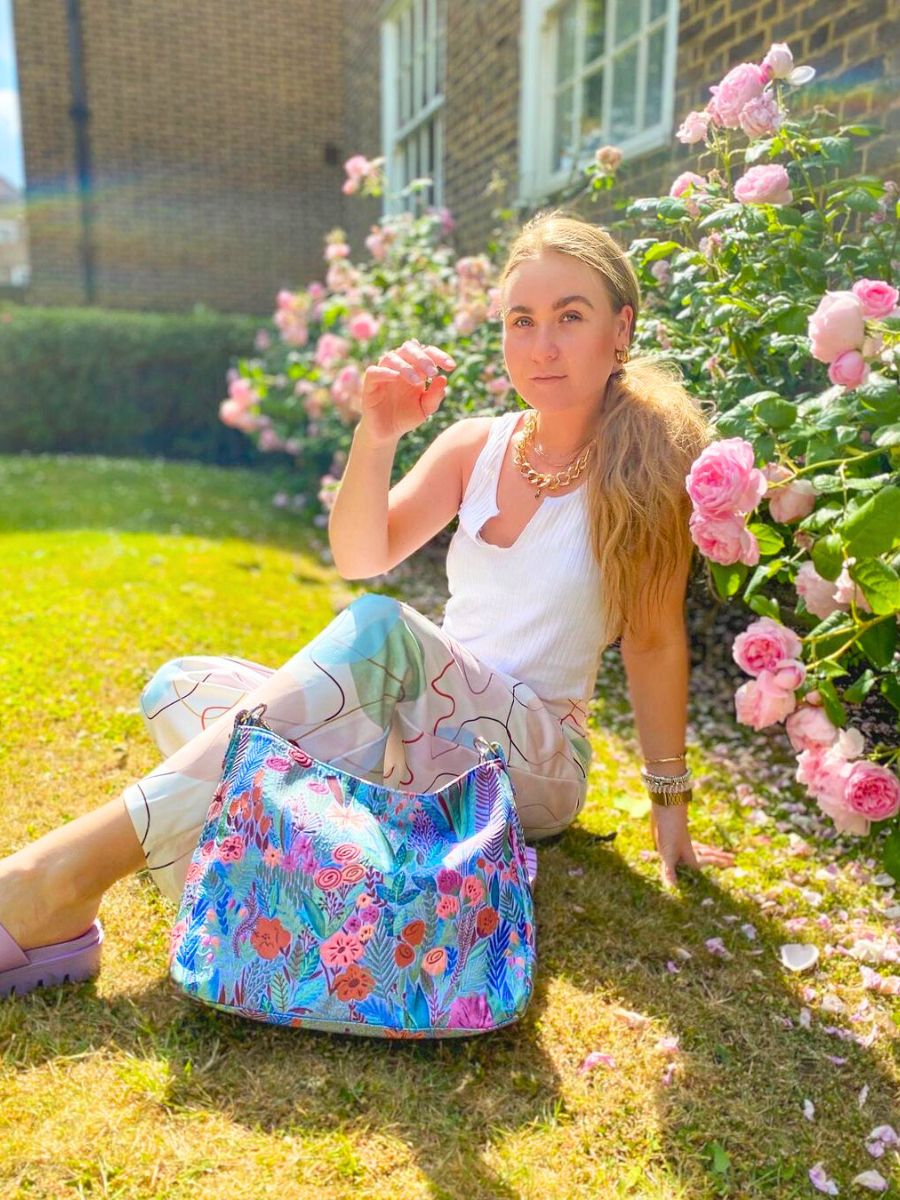
6. Iris
Iris flowers are the perfect solution for people who want to enjoy gardening without worrying about pollen triggering their allergies.
They are popular perennials from the bulbous plant family that are ideal for allergy-friendly gardens. The pollen of the iris is found deep in the lower part of the flowers and is very heavy and sticky, preventing it from dispersing in the air and causing allergies. The pollen falls to the ground even after it is released from the flowers, making it an excellent choice for allergy sufferers.
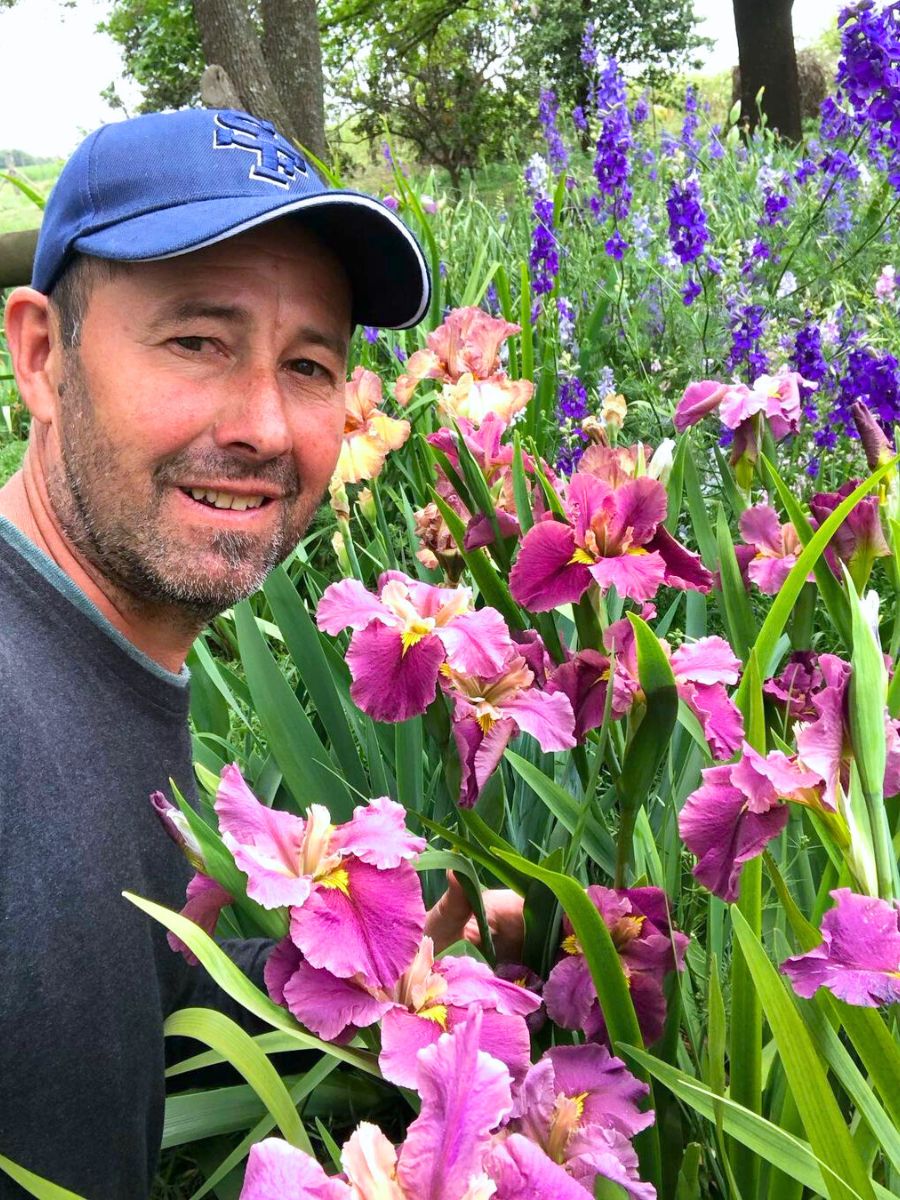
7. Tulip
The less pollen a plant produces, the better it'll be for allergic people. Furthermore, they are predominantly pollinated by bees and other insects rather than wind. Insect-pollinated flowers typically produce less airborne pollen, as the grains are specifically adapted to adhere to the bodies of insects for efficient pollination. As a result, the amount of tulip pollen released into the air is relatively low, decreasing the likelihood of triggering allergies in sensitive individuals. As a fact, tulips produce less airborne pollen compared to flowers like daisies, sunflowers, or lilies.
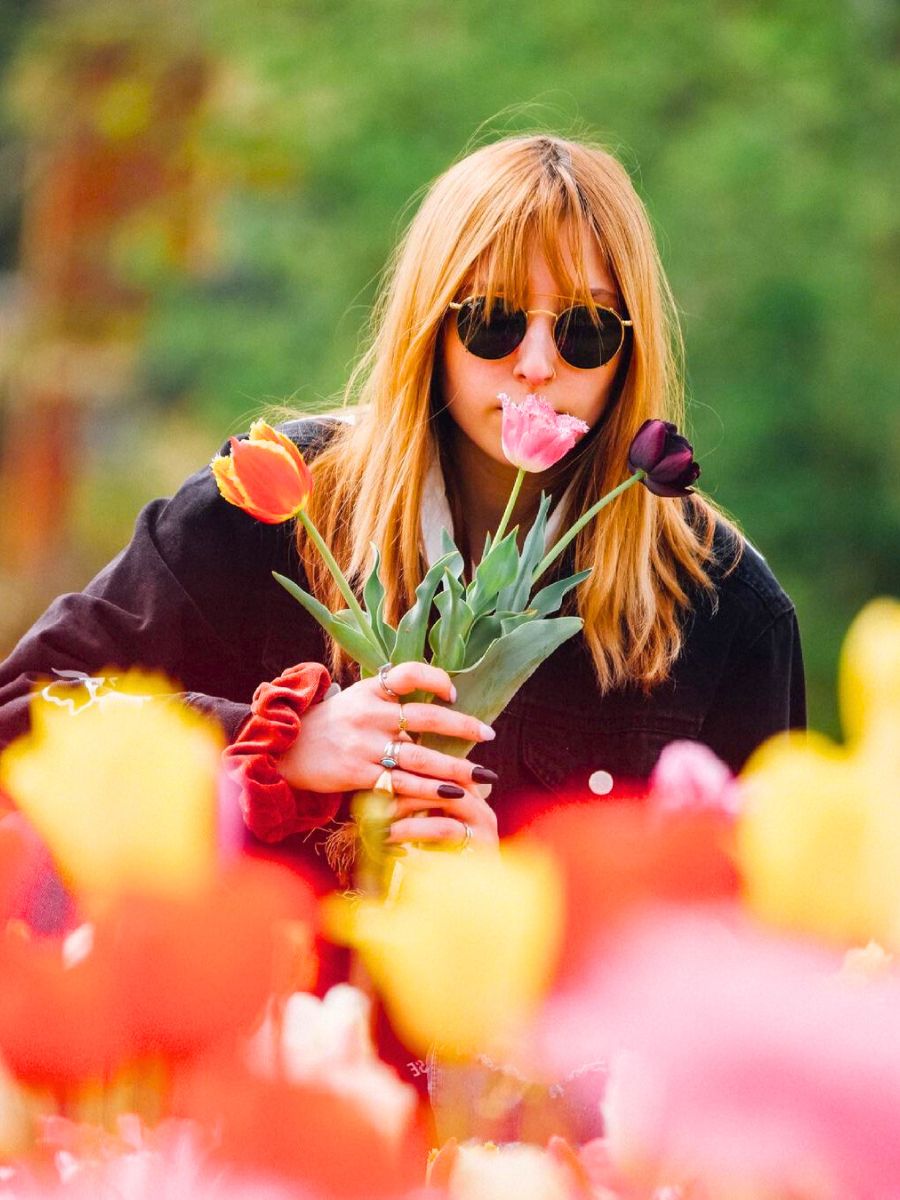
Not only that, but tulips are good for allergy sufferers because they don't have a really strong scent, which can trigger several allergic reactions among those who love getting near flowers and smelling them on first encounter. They are ideal to have in your garden if you have people with mild pollen allergies.

Just be aware that, despite these benefits, some people may be sensitive to getting 'tulip fingers', an irritating rash that can occur on hands and arms when touching tulips for a longer period, like for work or during gardening. It is also called 'tulip itch' or 'tulip nail'. The culprit is a chemical called tuliposide that is found mostly in the outer layers of tulip bulbs.
8. Bee Balm
Bee balm (botanical: Monarda didyma) is one of the most beneficial flowers for allergy sufferers. The majority of bulb plants considered to be spring flowers are self-pollinating. A bee balm produces a small amount of flower pollen in the air, but it has a low allergenic potential. This means they're ideal for hypoallergenic gardens as well as flower arrangements.
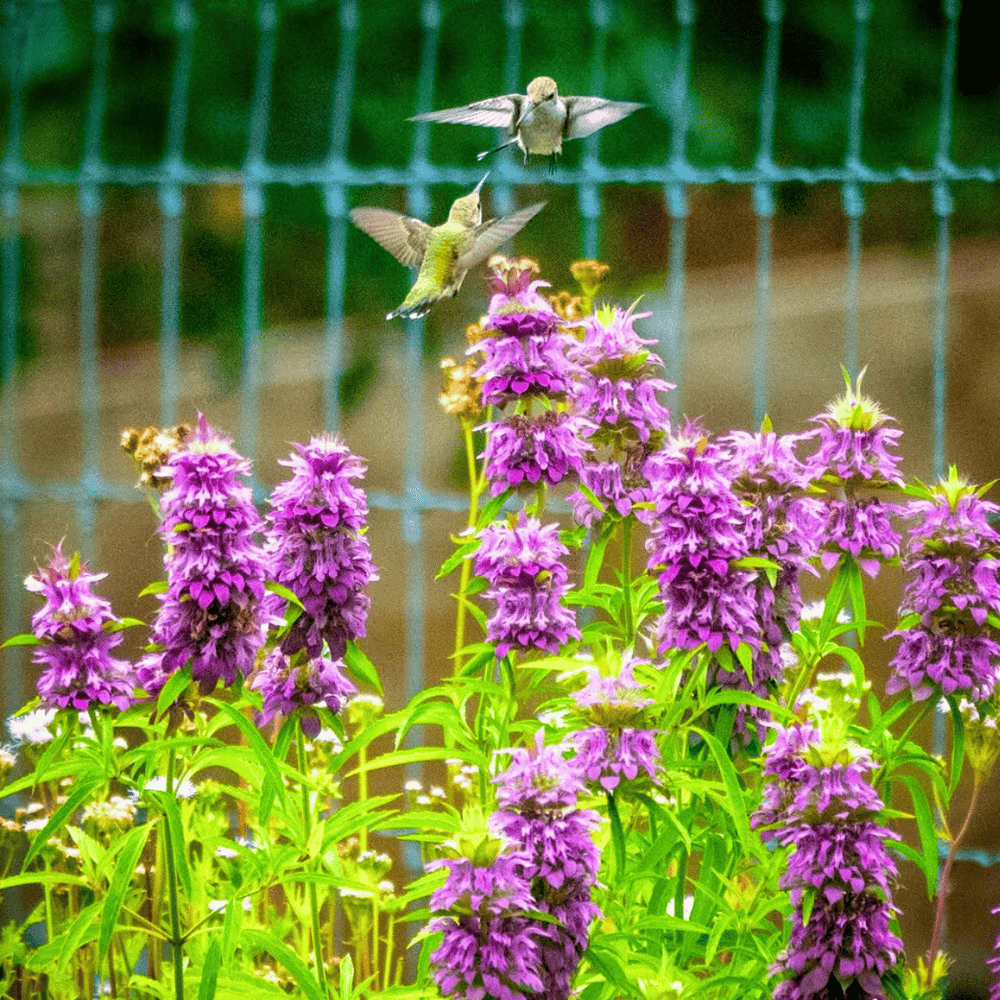
Having flowers in your garden without the constant sneezing and itching is possible. Go ahead and make these a part of your backyard to make yourself and your flower lovers' eyes happy.

